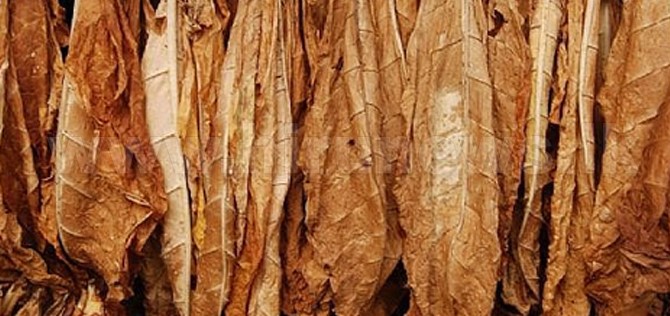Tobacco farming loses its charm

Gorakhpur, Barauni, Sindri fertilizer plants revival gets Cabinet nod
August 10, 2018
Telangana will have Organic super markets soon
August 14, 2018AgriNation News Network
New Delhi. 13 August 2018
Tobacco acreage and production in the country have started declining as the government is encouraging farmers in ten states like Andhra Pradesh to shift to alternative crops in a big way, a senior government official said..
Alternative crops like foodgrains, cereals, pulses, oilseeds, vegetables, sugarcane, oil palm, and even dairy and poultry activities have been identified for tobacco growing areas in different states, he said.
“Both area and production of tabacco are declining every year because the government is supporting with funds to encourage the tobacco growers to shift to alternative crops,” the official said. About Rs 9.5 crore was released to the tobacco growing states in the 2017-18 fiscal to shift to alternative farming.
Funds are being provided under the Rashtriya Krishi Vikas Yojana (RKVY), he said. As per the latest data, the tobacco area has declined by 14.56 per cent to 3.99 lakh hectares in 2016-17 from 4.67 lakh hectares in 2014-15. Even tobacco output has come down to 8.05 lakh tonnes in 2016-17 from Rs 8.55 lakh tonnes in 2014-15.
“India’s tobacco production is higher than Brazil but much lower than China. Efforts are being made to reduce both area and production in our country,” the official said.
More awareness is being created in the growing states and even the Tobacco Board is distributing pamphlets on package of practices for alternative crops to Flue Cured Virginia (FCV) tabacco, he said and added this will yield positive results.
The Telangana government has informed that tobacco farmers in the state have shifted to alternative crops like bengal gram and chillies, while in Odisha farmers have diversified to vegetables like tomato, cauliflower, cabbage, chillly and hybrid maize, sunflower and others.
In Karnataka, farmers have shifted to crops like soyabean followed by sugarcane during 2017, he added. Besides, the central government is supplementing the states efforts through implementation of various crop development programme like National Food Security Mission (NFSM).
—————————————————————————————————————————————–


